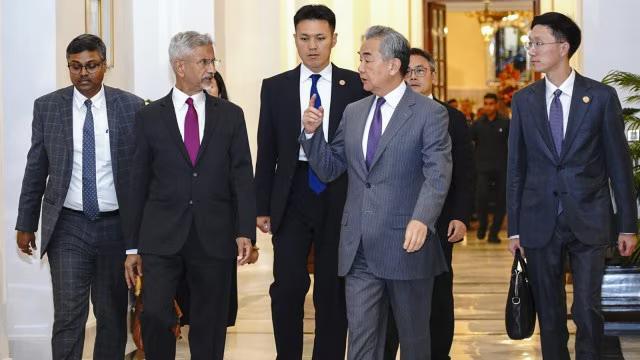
What issues did India raise during Chinese Foreign Minister Yi’s visit?
The recent visit of Chinese Foreign Minister Wang Yi to India has been a significant event in the bilateral relations between the two countries. During the discussions, India raised several key issues of concern, which have been a topic of debate and tension in the past. In this blog post, we will delve into the issues that India raised during Wang Yi’s visit and their implications on the Indo-China relations.
Terrorism: A Major Concern
One of the major issues that India raised during Wang Yi’s visit was terrorism. India strongly emphasized the need for cooperation between the two countries to combat terrorism, including cross-border terrorism. India recalled that one of the original objectives of the Shanghai Cooperation Organisation (SCO), a regional grouping that India and China are both members of, was to counter terrorism. India’s concerns over terrorism are well-founded, given the history of terrorist attacks in the country, including the 2019 Pulwama attack, which was carried out by a Pakistan-based terrorist group.
India’s emphasis on terrorism is significant because China has been accused of not doing enough to counter terrorism, particularly in the case of Pakistan. China has been accused of providing military and economic aid to Pakistan, despite the country’s poor human rights record and its support for terrorist groups. India has been pressing China to take a tougher stance on terrorism, and Wang Yi’s visit provided an opportunity for India to reiterate its concerns.
Mega Dam Construction on Brahmaputra River
Another major issue that India raised during Wang Yi’s visit was the construction of mega dams on the Brahmaputra River by China. The Brahmaputra River is a critical water source for India, and any construction on the river could have significant implications for India’s water security. India has expressed concerns over the construction of dams on the river, which could affect the flow of water and potentially lead to droughts and water scarcity in India.
China has been constructing a series of dams on the Yarlung Tsangpo, which is the upper reaches of the Brahmaputra River. India has expressed concerns over the potential impact of these dams on the river’s flow, and has sought assurances from China that the dams will not affect India’s water security. Wang Yi’s visit provided an opportunity for India to reiterate its concerns and seek greater clarity from China on its plans for the Brahmaputra River.
Border Issues
India and China have a long-standing dispute over the border between the two countries. The dispute has been ongoing for decades, and has led to several military confrontations between the two sides. India has accused China of constructing roads and infrastructure in the Doklam plateau, which is claimed by India, and has sought assurances from China that it will not proceed with its plans.
Wang Yi’s visit provided an opportunity for India to reiterate its concerns over the border dispute, and to seek greater clarity from China on its plans for the Doklam plateau. India’s concerns over the border dispute are significant because any construction or infrastructure development in the disputed area could have implications for India’s national security.
Other Issues
In addition to terrorism, mega dam construction on the Brahmaputra River, and border issues, India also raised several other issues during Wang Yi’s visit. These included concerns over China’s Belt and Road Initiative (BRI), which India has accused of being a debt trap for smaller countries. India also raised concerns over China’s growing military presence in the Indo-Pacific region, which India sees as a threat to its own national security.
India also sought to strengthen its economic ties with China, and discussed several areas of cooperation, including trade, investment, and tourism. India and China have significant trade ties, and India is one of China’s largest trading partners. However, India has been seeking to diversify its trade ties and reduce its dependence on China.
Conclusion
In conclusion, India raised several key issues during Chinese Foreign Minister Wang Yi’s visit, including terrorism, mega dam construction on the Brahmaputra River, border issues, and several other issues of concern. India’s emphasis on these issues is significant because they have the potential to impact India’s national security, economy, and environment. The visit provided an opportunity for India to reiterate its concerns and seek greater clarity from China on several key issues.
The visit also highlighted the complexity of India-China relations, which are characterized by both cooperation and competition. While India and China have significant trade and economic ties, they also have several areas of disagreement, including terrorism, border issues, and the Belt and Road Initiative.
As India looks to strengthen its relations with China, it will be important to balance its economic and strategic interests with its concerns over national security and the environment. The visit of Wang Yi provided an opportunity for India to do just that, and to reiterate its commitment to a balanced and mutually beneficial relationship with China.
News Source:






